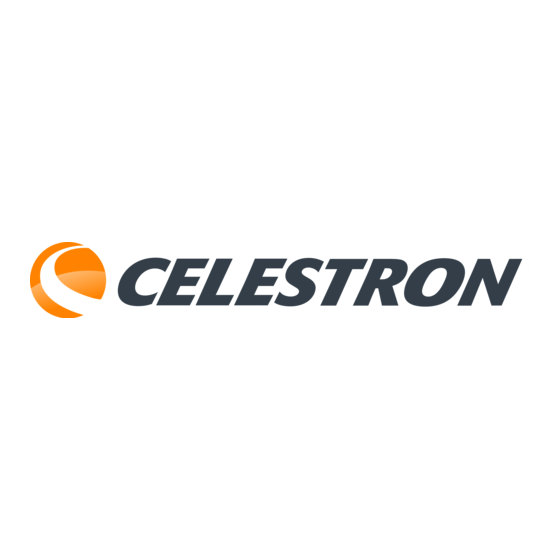Celestron 22405 Manual de instrucciones - Página 11
Navegue en línea o descargue pdf Manual de instrucciones para Telescopio Celestron 22405. Celestron 22405 12 páginas.

RECYCLING BATTERIES
Many old batteries end up in landfi ll, where they can leak harmful chemicals into the soil. You can help tackle this problem by recycling your batteries.
Most supermarkets and shops that sell batteries now have collection bins for used batteries. Some town halls, libraries or schools may
also set up collection points. Look out for the Be Positive signs, or similar signs, in shop windows and in stores to fi nd these collection
points. Several local councils already collect batteries in the doorstep recycling collection, or provide bins at the local waste and recycling
center. Check with your local council to fi nd out what battery recycling choices are available in your area.
For more details about battery recycling, and the new laws, visit the website of the Department for Environment, Food and Rural Affairs (Defra).
Why Recycle Household Batteries?
Some household batteries contain chemicals like lead, mercury or cadmium. If batteries are thrown into your normal rubbish bin, they are likely
to end up in landfi ll. Once buried, the batteries start to break down and can leak some of these chemicals into the ground. This can cause
soil and water pollution, which may be a health risk for humans. Recycling stops batteries going to landfi ll and helps recover thousands
of tons of metals, including valuable metals like nickel, cobalt and silver. This reduces the need to mine new materials, cutting CO2
emissions and saving resources.
What happens to the used batteries?
Recycled batteries are fi rst sorted into different types – for example lithium, alkaline, lead cell, mercury button – as each type is recycled
differently. Lead acid batteries (used for car batteries) and mercury button cell batteries (fl at, round, silver batteries found in watches) are fully
recycled in the UK. Lithium and alkaline batteries (AA, AAA and 9v batteries) are part-recycled in the UK. They are then sent to plants abroad
for the rest of the process. Other types of battery are sent abroad, as the UK does not currently have plants that can recycle these.
DISPOSAL OF USED BATTERIES:
environment and human health. This symbol marked on the battery and/or packaging indicates that used battery shall
not be treated as municipal waste. Instead it shall be left at the appropriate collection point for recycling.
By ensuring the used batteries are disposed of correctly, you will help prevent potential negative consequences for
environment and human health. The recycling of materials will help to conserve natural resources.
For more information about collection and reclying of used batteries, please contact your local municipality, your
waste disposal service or the point of sale where you purchased this product.
Battery may contain hazardous substances which could be endangering to
9
